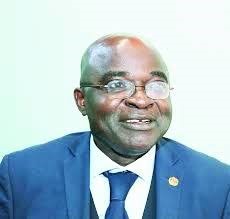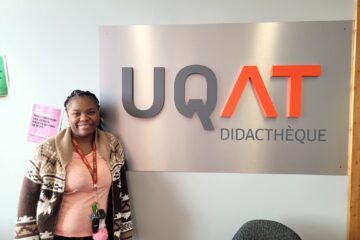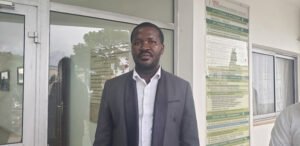“Cancer, a public health priority”

Prof. MBOPI-KEOU, President of the Scientific Committee of the 3rd Scientific Days of the Faculty of Medicine and Biomedical Sciences of the University of Yaoundé 1, takes stock of the fight against cancer in Central Africa and Cameroon and advocates for an effective national and sub-regional response to this disease which causes 10 million deaths per year worldwide.
We are really in a data bank to receive. Cancer will be approached from its multidisciplinary dimension. First, I will tell you that this morning’s plenary session took stock of the scale of the pandemic in the entire Central African region, where Professor Touré, head of the Ivorian school, gave us a rough assessment and figures for the entire African region.
Let us recall that cancer is responsible for 10 million deaths per year, making it the leading cause of death. And in our country, Cameroon, we record 10,000 deaths per year and 15,000 cases of new cancers. After the plenary, we also saw the situation in Cameroon, which was outlined by Professor Emile Mboudou, Director General of the Gyneco-Obstetric and Pediatric Hospital of Douala and professor at this faculty.
Still in plenary, the therapeutic strategies were presented by one of our former students, Dr. KENNE MUNOH, who is an assistant professor in New York, United States. He spoke by videoconference to give us an update on therapeutic advances. Then, we have two round tables. The first, which will begin shortly, is preceded by the honorary rector ETOA François Xavier, biochemist, who will address the issue of the environment and cancer.
Professor NGOGANG Jeanne, President of the University of the Mountains, will speak about nutrition and cancer, saying that “health is on our plate.” Then, Professor MOUNDIPA Paul, who is head of the biochemistry department at Yaoundé 1, will speak about toxic substances and cancers.
And there is also, in this panel, the Ministry of the Environment, which is represented by Professor TCHAWA Paul, who will talk to us about pollution and all the strategies to combat pollution, and how this pollution, in two pilot cities, Douala and Yaoundé, plays an important role in the occurrence of cancers in humans. Now, we have free communications that report on prevention to clinical management, new therapies and, naturally, prevention.
And finally, a question and answer session with the experts will take place on February 5, where the general public will be able to ask all questions about cancer. Let us recall that one in four Cameroonians has a cancer patient or a patient who is unaware of suffering from cancer. So, that is, roughly speaking, this very rich conference, a first for us, which will allow us, we hope, to provide at least some answers in terms of the national and sub-regional response.
We naturally invite those who govern us to understand that, in the university, we have teaching, research and support for the community. So, there will be no public policy without support for research and without support for clinicians. And, ultimately, this research deserves funding. We must fund diagnosis, we must fund treatment, we must fund prevention. So, this is, roughly speaking, the fruit of our observations and perhaps especially of our cases of conscience.
Interview by Elvis Serge NSAA
















